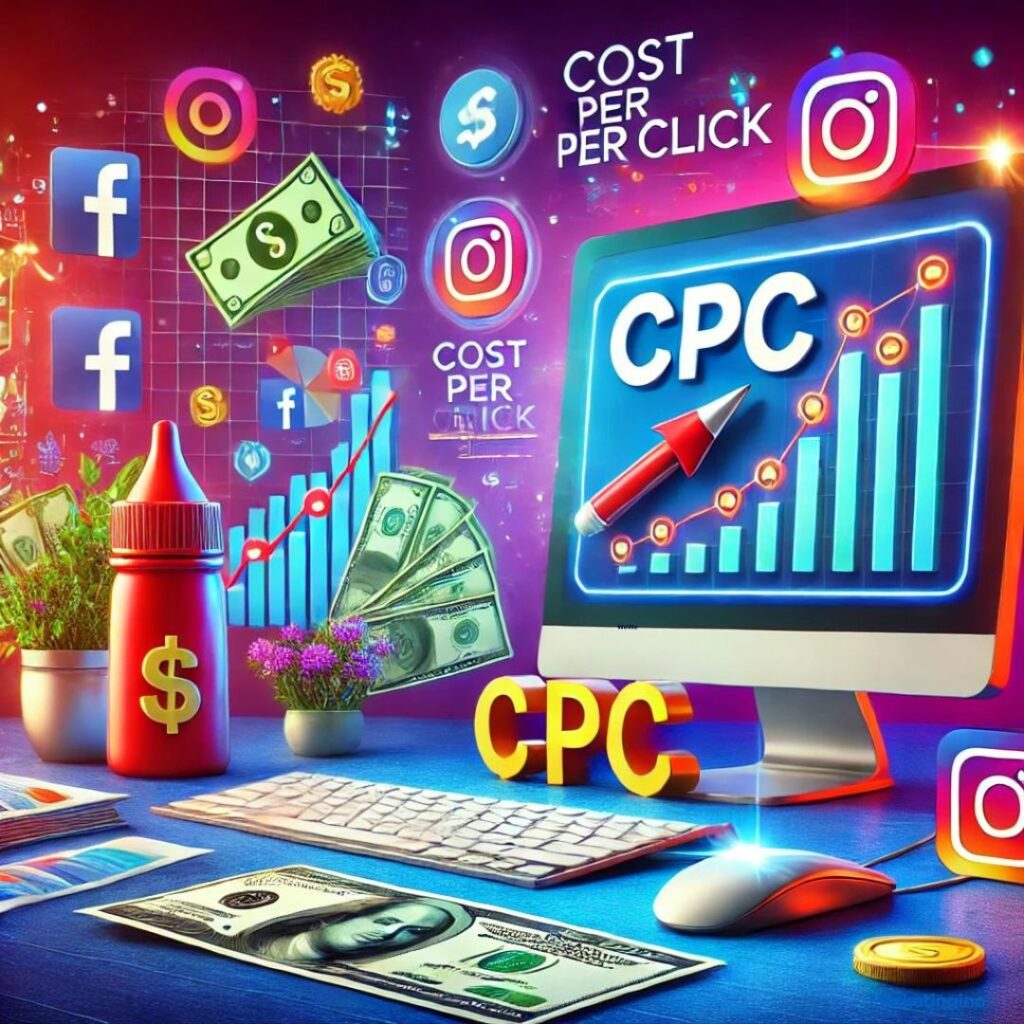In the fast-evolving world of digital marketing, understanding key metrics is crucial for running successful advertising campaigns. One such essential metric is Cost per Click (CPC). CPC is a critical component of online advertising, particularly in pay-per-click (PPC) models. This article delves into the intricacies of CPC, explaining what it is, how it works, and why it matters to marketers.
What is Cost per Click (CPC)?
Cost per Click (CPC) is a metric that quantifies the amount a marketer pays each time someone clicks on their online ad. CPC is commonly used in digital advertising models, such as Google Ads, Bing Ads, and social media platforms like Facebook and Instagram. This model ensures that advertisers only pay when their ad generates a direct interaction, making it a cost-effective method to drive targeted traffic to a website or landing page.
How Does CPC Work?
The CPC model operates through an auction system where advertisers bid on keywords relevant to their target audience. Here’s a simplified breakdown of how the process works:
- Keyword Selection: Advertisers choose keywords that they believe their potential customers are likely to use when searching for their products or services.
- Bid Placement: Advertisers set a maximum bid for each keyword, representing the highest amount they are willing to pay per click.
- Ad Auction: When a user enters a search query, an auction takes place where the ad platform evaluates the bids and the relevance of the ads.
- Ad Placement: The ad platform considers the bid amount and the ad’s Quality Score (a measure of relevance and quality) to determine which ads appear and in what order.
- Cost Per Click: If a user clicks on the ad, the advertiser pays the amount determined by the auction, which is often less than or equal to their maximum bid.
Factors Influencing CPC
Several factors can influence the Cost per Click, including:
- Keyword Competitiveness: Highly competitive keywords tend to have higher CPCs because more advertisers are bidding on them.
- Quality Score: Ads with higher Quality Scores generally pay less per click, as ad platforms reward relevant and well-optimized ads with lower CPCs.
- Industry: Some industries naturally have higher CPCs due to the value of conversions within those sectors (e.g., legal, finance, and insurance industries).
- Ad Position: Ads in higher positions on the search results page typically have higher CPCs because they receive more visibility and clicks.
Why CPC Matters to Marketers
Understanding and optimizing CPC is crucial for several reasons:
- Budget Management: Knowing the CPC helps marketers plan and allocate their advertising budgets effectively, ensuring they get the most out of their ad spend.
- ROI Measurement: By tracking CPC and the resulting conversions, marketers can assess the return on investment (ROI) of their campaigns and make data-driven decisions.
- Campaign Optimization: Monitoring CPC allows marketers to refine their keyword strategies, ad copy, and targeting to improve ad performance and reduce costs.
- Competitive Edge: Keeping CPC low while maintaining ad quality can give marketers a competitive edge, allowing them to outperform rivals with the same budget.
Strategies to Optimize CPC
To optimize CPC and get the most value from your ad spend, consider the following strategies:
- Keyword Research: Invest time in researching and selecting the right keywords that balance relevance and competitiveness.
- Ad Quality: Create high-quality, relevant ads that resonate with your target audience to achieve higher Quality Scores.
- Targeting: Use precise targeting options to reach the most relevant audience, reducing wasted clicks from uninterested users.
- Bid Management: Regularly review and adjust bids based on performance data to ensure optimal spend.
- Landing Page Optimization: Ensure that your landing pages are relevant, fast, and user-friendly to improve conversion rates, which can positively impact CPC.
Cost per Click (CPC) is a fundamental metric in the realm of digital advertising. It provides a direct link between ad spend and user engagement, allowing marketers to control their budgets, measure performance, and optimize campaigns for better results. By understanding the factors that influence CPC and implementing effective strategies to manage it, marketers can maximize their return on investment and drive significant growth for their businesses.




